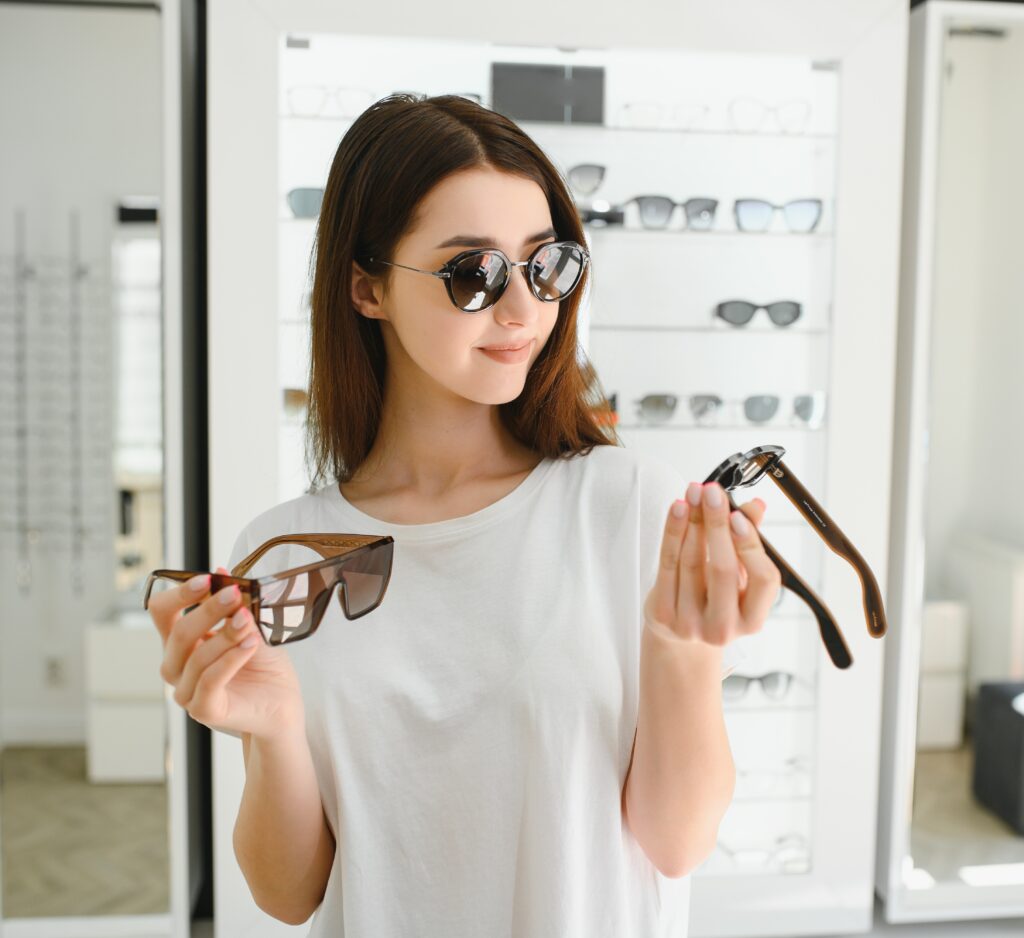Are Your Sunglasses Really Protecting You? How to Check for True UV Coverage

Throwing on a pair of sunglasses might feel like a natural part of your routine—but how do you know they’re actually protecting your eyes?
At OptiCare Health, we often meet patients who assume their sunglasses are doing their job simply because the lenses are dark or stylish. But the truth is: not all sunglasses block UV rays, and without that protection, your eyes could be more vulnerable than you think.
Let’s break down what UV protection really means—and how to make sure your sunglasses are keeping your vision safe.
UV Rays and Your Eyes: What’s the Risk?
UV (ultraviolet) rays from the sun can cause serious long-term damage to your eyes, including:
-
Cataracts
-
Macular degeneration
-
Photokeratitis (sunburn on the eye surface)
-
Pinguecula and pterygium (growths on the white of the eye)
-
Eyelid skin cancer
Unlike skin damage, you won’t always feel UV damage happening to your eyes—but the effects are cumulative and permanent. That’s why protection is non-negotiable.
Dark Lenses Aren’t Always Safe
Here’s one of the biggest misconceptions: the darker the lens, the better the protection.
Wrong.
Dark lenses reduce brightness and glare, but they don’t necessarily filter UV rays. In fact, cheap or non-certified sunglasses can actually do more harm—because the darkness causes your pupils to dilate, letting in even more harmful UV radiation if there’s no filter present.
That’s why UV protection must be built into the lens itself, not just implied by the tint.
What to Look For: UV400 and More
The gold standard in UV protection is UV400—this means the lenses block 100% of UVA and UVB rays.
When shopping for sunglasses, check for:
-
A label or etching that says UV400 or 100% UVA/UVB protection
-
CE marking (in some regions) that meets minimum safety standards
-
Certifications from the manufacturer—not just “UV protection” as a vague promise
At OptiCare Health, we only offer lenses that meet verified UV standards. You don’t need to guess—we’ll show you exactly what your lenses do.
Are Online Glasses or Fashion Frames Safe?
Ordering sunglasses online or buying them at a boutique might be convenient—but it’s a gamble. Many low-cost options don’t provide UV400 protection, even if they look great or claim to be “UV-blocking.”
If you’re unsure whether your sunglasses truly protect your eyes, bring them to our clinic. We’ll help you understand what to look for and assist you in choosing verified, UV-safe eyewear from our collection. You can also use our Virtual Try-On tool to preview frames online before your visit—making it easier to find a style that’s both protective and perfectly you.
Bonus: What About Polarized Lenses?
Polarization reduces glare—especially on water, snow, or roads—but it has nothing to do with UV protection. Polarized lenses are great for comfort, but they’re not a substitute for UV-blocking filters.
That’s why we recommend sunglasses that are both UV400 and polarized for maximum protection and clarity—especially if you drive often or spend time outdoors.
Don’t Take Chances with Your Vision
You wouldn’t use sunscreen with no SPF. Why wear sunglasses that don’t shield your eyes?
At OptiCare Health, we help you find sunglasses that do more than look good. Our collection includes stylish, protective eyewear designed to block harmful rays and support long-term eye health. Whether you’re commuting, relaxing at the beach, or shopping for your child—we’ve got options that match your lifestyle.
Stop guessing. Visit us today and make sure your sunglasses are actually protecting you.
